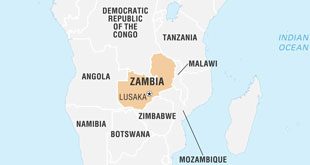
Kampala, Uganda | THE INDEPENDENT | A government-supported survey casts a looming expansion of the education and prosperity gap between rural and urban children caused by the COVID-19 pandemic. In March, the government directed the closure of all schools and tertiary institutions sending home more than 12 million children until last month when about a tenth of them in their final years were allowed back to school.
The survey by the Uganda Bureau of Statistics and the World Bank, dubbed “the Uganda High-Frequency Phone Survey on COVID-19”, shows a big challenge by the government to ensure that all students access studies as schools are still locked. It also shows that some school-going age children have lost interest in studies.
The second study was done in July and August, following the first one done in May and June. Ministry of Education and Sports in conjunction with its institutions and partners developed self-study content for primary and secondary schools. It also created a new digital platform with video lessons to enhance student’s learning.
Some schools also introduced their own online study platforms and others delivered physical materials to their students while some students rely on newspapers, radio and television programs. According to the report in 2017/18, 41.3% of individuals said they watched TV, according to the National Information Technology survey but Uganda National Household Survey 2016/17 found great variation in television ownership across regions.
In Kampala, 42% of households had a working TV set, while in the countryside, ownership ranged between 1 and 3%. There is higher access to a mobile phone at more than half of the households across the country, but less than one third have a smartphone.
Radio is the most popular medium to access information and in 2017/18, 78% of individuals said they listened to the radio, according to the National Information Technology Survey. However, most children and parents have found learning via radio most challenging as it is not quite interactive.
The survey of about 2,500 households shows that between the two survey periods, there is a slight increase in the children accessing some learning. UBOS senior statistician, Henry Mubiru who led the research team says there is a decline in the number of children in the rural areas involved in any kind of learning.
The trend in the rural areas can be attributed to many reasons including scarce resources, but the Bureau is concerned that a significant number of children who have abandoned learning say they have lost interest.
According to Mubiru, the rural-based children are also affected by the increase in household chores that are assigned to them denying them time for studying.
The fate of the non-candidate children is expected to be decided by the government in January 2021, whether and then the schools will be fully reopened.
******
URN
 The Independent Uganda: You get the Truth we Pay the Price
The Independent Uganda: You get the Truth we Pay the Price


